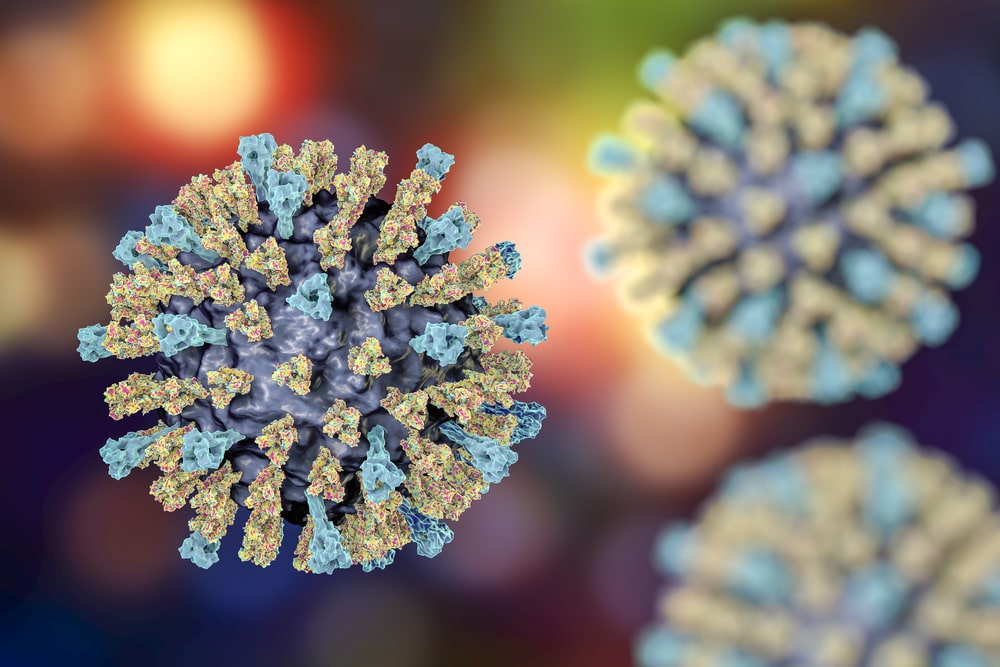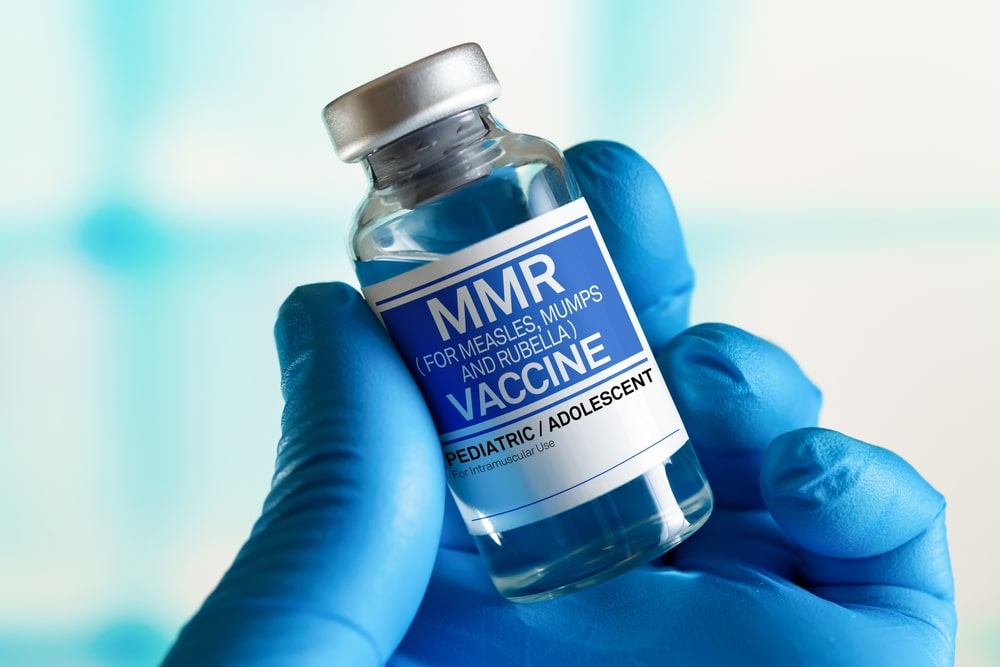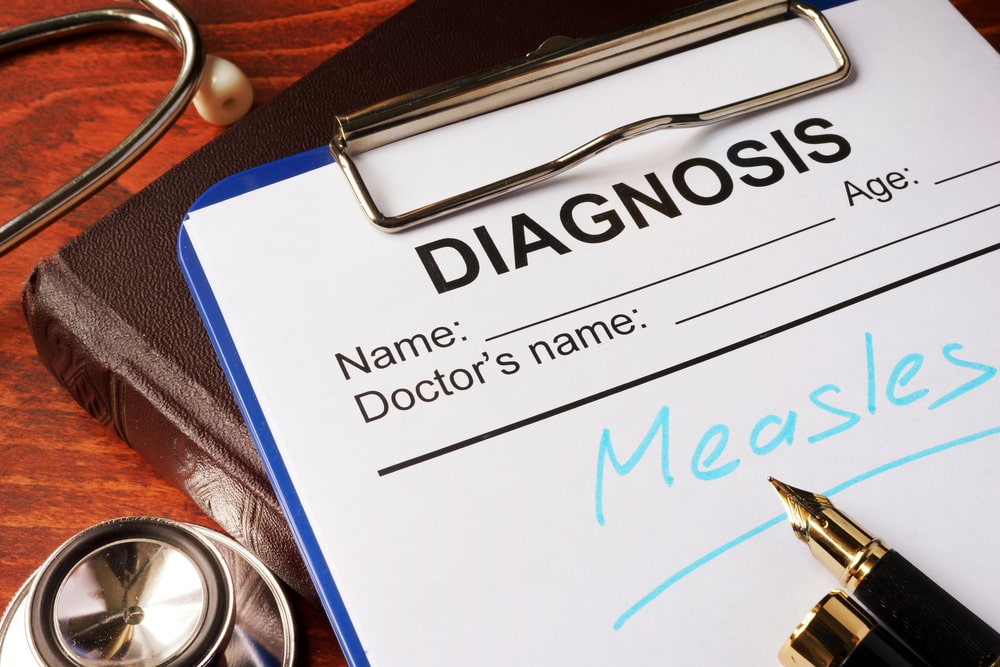Health experts warn that measles cases are alarmingly spiking!
Measles is making a concerning comeback across the globe, the Centers for Disease Control and Prevention and the World Health Organization recently warned, with cases of the often-forgotten killer rising as countries struggle to combat declining vaccination rates.
Though measles was declared eliminated from the US in 2000, the disease is expected to continue a nationwide spread, primarily because of vaccine skepticism. We’re talking here about one of the most transmissible diseases, and according to experts, measles has been found in the past few weeks in some northeastern US states.
Let’s find out more about the recent measles cases, what the symptoms of the disease are, and what we should expect in the future!

1. Measles is a potentially fatal infection
Measles is a highly contagious virus that spreads easily when an infected person sneezes, coughs, or breathes, and it can linger in the air for as much as two hours after the infected person has left. With the virus being so contagious, it’s no wonder that measles cases can quickly become a real issue.
Moreover, the infection can be fatal, with one in five people catching the virus being hospitalized (the data applies to the US population). Measles can also cause serious health complications like blindness, severe breathing issues, and brain swelling. The most vulnerable groups are young kids, pregnant women, and older adults, who are at high risk of serious complications.
Because measles is extremely contagious (some experts warn that it’s actually one of the most, if not the most contagious diseases that exist), vaccination rates need to be up to 95% to protect communities from outbreaks. The bad news is that our country hasn’t met this target in several years, which may be the reason why measles cases are currently spiking.
2. Symptoms
Symptoms usually develop around eight to 12 days after you’re exposed to someone with measles. However, there have been measles cases where it took up to 21 days to develop symptoms after exposure.
The most common measles symptoms include a high fever, a barky cough, a runny nose, tiredness, and red or bloodshot eyes. A few days after these symptoms start, you’ll develop a red, blotchy rash that spreads from your face to other areas of your body. The rash itself lasts around seven to 10 days.
Other symptoms may include muscle pain, sensitivity to light, white spots on your mouth, and a sore throat.
Since the incubation period for measles is very long, most infected people assume their symptoms are nothing but a cold until the rash emerges three to five days after the initial illness starts. Even then, most people will not recognize a measles rash.

3. Measles treatment
There’s no specific treatment for measles, and experts focus on providing support care like reducing the risk of dehydration and tackling fever to relieve symptoms and help prevent complications.
Measles cases can be prevented with two doses of a safe and very effective vaccine, which can be given alone but is frequently combined with other vaccines for diseases like rubella and mumps.
While measles was eliminated in the US in 2000, largely due to a highly effective vaccination campaign, clusters are still possible because the virus isn’t eliminated worldwide. In fact, there are several countries with active outbreaks.
4. Which virus causes measles?
The disease is caused by an extremely contagious virus called morbillivirus. It’s an airborne disease, which means it spreads through the air when a person who’s infected talks, breathes, sneezes, or coughs.
Similar to the coronavirus, if you breathe in the particles from someone infected, you can get measles, too. The airborne droplets can land on surfaces, increasing the risk of infecting other people. Of course, wearing a mask can help you protect yourself, so make sure you wear one when needed. Here’s a pack of 100 face masks from Amazon to ensure you don’t run out of them.
Measles cases can quickly become a serious public health issue because the virus is highly contagious. It’s so contagious that if 10 individuals who weren’t vaccinated were in a room with someone infected, nine of those individuals would get measles. That’s why the best way to prevent the disease is to get vaccinated.
5. Measles is making a comeback in the US
An email from the Centers for Disease Control and Prevention recently sent to healthcare workers said the agency was notified of 23 confirmed US measles cases between December 1, 2023, and January 23, 2024.
Most of these measles cases were in children and teenagers who hadn’t gotten their measles vaccines despite being eligible. So far, the infections have been found in Delaware, New Jersey, Pennsylvania, and the Washington, DC, area.
Healthcare experts say that measles would probably spread to the West Coast and the Midwest, given the situation presented by the CDC. If measles cases are discovered, healthcare workers are asked to immediately notify local and state health departments, isolate patients, test them with throat and nose swabs, and ensure all patients are vaccinated against the infectious disease, especially if traveling internationally.

6. Why is measles spreading again?
The increased number of measles cases seen in recent weeks is reflective of a spike in global infections and a growing global threat from the disease. Although measles is extremely contagious, vaccines are effective in preventing the infectious disease. A surge in cases is also occurring in Europe as well, according to the World Health Organization.
If an unvaccinated person travels to a country where measles is still common, becomes infected, and brings it back to the United States, they can spread the dangerous virus to other unvaccinated people. With a lot of travel back and forth and so many unvaccinated people, it’s no wonder that measles cases are rising.
The irony of the measles situation is that the efficacy of the vaccine has meant that most people aren’t aware of how dangerous the infection can be, and thus there’s not much urgency when it comes to getting the shot.
According to health experts, most people will never have actually seen measles and could mistakenly believe that it’s just a minor rash that goes away after a few days, not realizing that this is an extremely serious and potentially fatal disease. In other words, this sort of thinking is one of the reasons why there’s been a spike in measles cases.
7. Can seniors get the measles?
People born before 1967 were likely exposed to the virus in childhood, as measles was very common at that time. This being said, they have likely developed natural immunity to the infectious disease, and their risk of contracting measles is pretty low.
However, someone who was never exposed to the disease, a senior born in another country, or a person born in 1957 or later who doesn’t have a medical condition that would make immunization unsafe may be at risk and should get at least one dose of the measles vaccination.
If your healthcare provider recommends the vaccination, Medicare and most insurance companies will usually cover it. Seniors are encouraged to do all they can to prevent measles because contracting it can prove serious or even life-threatening for them.
An old adult with a frail immune system can easily end up in the hospital from the earlier symptoms of measles. Even when the infectious disease doesn’t prove life-threatening, the recovery can be difficult and may compromise their ability to live independently.
If you liked our article on measles cases, you may also want to read 10 Common Flu Hotspots You Should Avoid in the Next Couple of Months.













